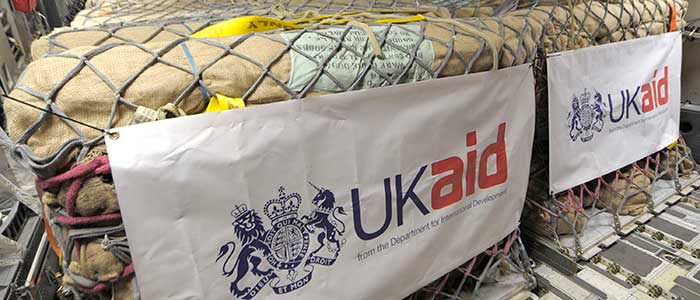Web_UkAid_4410791581_4ebdbcb6b1_o.jpg

One in four British aid pounds are to be spent by departments other than DFID, sparking renewed fears over UK aid's focus on poverty reduction. Credit: DFID
The figures, published by DFID last week, show that the department estimates the proportion of official overseas aid spent by other departments will rise from 18% now to 26% in 2019/20.
The appointment of Priti Patel, who has previously been sceptical of the UK’s aid spend, to head of the department, had already sparked concerns around the future of the country’s leadership on aid and development.
The new figures are likely to renew fears that DFID’s budget will be raided by other departments, and the UK’s aid focus will shift from ending extreme poverty to securing mutually beneficial trade deals and support for business and economic development.
Ministries that are likely to take a share of the aid budget are not subject to the same transparency, scrutiny and oversight as DFID. They include the Foreign Office, the Department for Business, Innovation and Skills, the Department for International Trade, and the Ministry of Defence.
The latter in particular has lobbied for millions in the UK budget and suggested it could be used to pay for military flights and equipment.
The criteria for Official Development Assistance, or ODA, which is set by the OECD, is strict. However it was widened earlier this year, after lobbying by the UK and others to include some military and counter terrorism activities, despite widespread opposition within the development sphere.
Speaking to the UK’s International Development Select Committee earlier this month, Mark Lowcock, DFID’s permanent secretary, said that activities such as peacekeeping or training the military on human rights and sexual crime could be scored as aid.
During the same session, Patel stressed that DFID’s work is cross-departmental and that the department would work very closely with others in future.
She dispelled fears she might attempt to abolish the department altogether. However she did emphasise a greater focus on trade, business and economic development, and ensuring that money is well spent.
In an article for the UK’s Daily Mail newspaper, published earlier that day, Patel had said too much of the UK’s aid money is “stolen or wasted”. Under her stewardship, UK aid would be governed by core conservative values and the British national interest, she wrote.
In other data published by DFID last week, figures showed that 40% more UK aid was lost through fraud in the department’s overseas programmes in 2015-16 than a year earlier.
Officials have reportedly said this was due to improved reporting and investigation into the misappropriation of funds.
According to the data, obtained by the Thomson Reuters Foundation through a freedom of information request, the cost of fraud has risen from £749,000 ($968,000) in 2014-15 to £1.04m ($1.3m) this year.
But while the cost of fraud has risen, the number of recorded cases has fallen. Only 69 out of 400 reports of fraud in 2015-16 were proven, down from 91 cases in the previous year.













